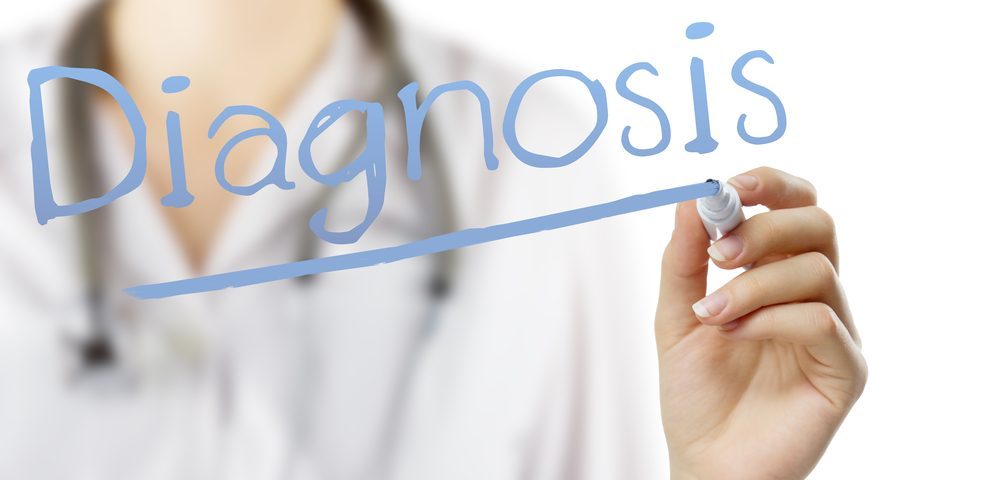Early Diagnosis Is Worth the Risk of Offending a Loved One
Written by |

Sadly, millions of people in the U.S. live with Alzheimer’s disease. Even sadder is that fewer than half of Alzheimer’s patients or their caregivers report being told of the diagnosis by a healthcare provider.
An Alzheimer’s Association report from 2015 indicated that only 45 percent of people with Alzheimer’s disease or their caregivers say they were told the diagnosis by a physician. This is a staggering statistic.
Imagine if a doctor knowingly withheld a breast cancer diagnosis. It would be devastating for the patient, even deadly. This is equally true for Alzheimer’s patients.
Early is sometimes late
Realistically, time is a great foe for Alzheimer’s patients, but in the beginning stages, timing is everything. Unfortunately, patients and their caregivers often receive the diagnosis after the disease has progressed. This impedes early detection, which is critical to slowing Alzheimer’s progressive destruction of the brain.
The early signs of dementia or Alzheimer’s don’t come early enough. By the time symptoms are noticeable, the disease may be further along than expected. Family members need to address slight but unusual changes in behavior.
Ignorance isn’t bliss
The truth won’t set people free from Alzheimer’s, but when armed with a diagnosis, patients and families have the proper footing to advance. Take the initiative. Familial caregivers must step into the fray with their loved ones and become a patient advocate.
Caregivers struggle with role reversal
The reversal of parent-child roles is emotionally taxing. The same is true when a spousal relationship is suddenly transformed into caregiving. Family members want to do what’s best for their loved ones, like searching for a diagnosis, but it is more natural to stay within traditional familial roles and personal comfort zones. Perhaps it is helpful to remember that nothing about Alzheimer’s is natural or normal. Caregivers have to adapt to new roles and a new normal, and to things that don’t come naturally.
The risk
You may not be someone who always takes charge, but from the perspective of a caregiver, it may be time. Start the conversation. Be the one who broaches the subject of a loved one’s odd behavior. Be the person who is willing to take it on the chin, so to speak. Reverse roles for the good of your parent, spouse, or friend. Love someone enough to risk offending them and potentially altering your relationship in the process.
Early diagnosis is that important.
***
Note: Alzheimer’s News Today is strictly a news and information website about the disease. It does not provide medical advice, diagnosis, or treatment. This content is not intended to be a substitute for professional medical advice, diagnosis, or treatment. Always seek the advice of your physician or other qualified health provider with any questions you may have regarding a medical condition. Never disregard professional medical advice or delay in seeking it because of something you have read on this website. The opinions expressed in this column are not those of Alzheimer’s News Today or its parent company, Bionews Services, and are intended to spark discussion about issues pertaining to Alzheimer’s Disease.






Charles P Duvall
There is the assertion early Dx is very important but the reality is: what should be done when Dx is made early? Surely Aricept and Namenda are not effective enough to warrant the claim.???
Ray Burow
Mr. Duvall,
Thank you for your comment. Yes, early diagnosis is imperative for a number of reasons, including the opportunity for treatment, during early onset. This was very beneficial for my mother and to our family. A clinical trial for dementia patients, appropriate medications, and periodic visits for neurological exams are essential for keeping the disease at bay, which was the case for my mother. However, the longer the wait, the less effective the results for slowing progression. Manufacturers of Namenda and Aricept, don't claim to cure Alzheimer's disease, but that the medication assists in slowing its progression. This was the case for my mother and our family. Early diagnosis, medication and the Lord above, allowed us to keep the disease at arms length for a number of years.
Silvia PanitchMD
I am an MD and we follow the Bredesen protocol. Read the book The End of Alzheimer’s.
There are are so many underlying causes . What I see the most is toxins damaging the brain.
Removing the assaults to the brain helps!!!
The earlier we find that the less the brain has suffered.
Ray Burow
Dr. Panitch,
Thank you for your comment. One of the concerns for caregivers is that doctors aren't informing their loved ones regarding their dementia diagnosis (only 45 percent of Medicare patients are informed, according to the Alzheimer's Association). Of course this is unfortunate and your practice DOESN'T fall under this category. Kudos to you.
However, the lack of diagnosis by a significant percentage of doctors who fail to diagnose, speaks to your statement: "the longer the wait, the less effective the results for slowing progression."